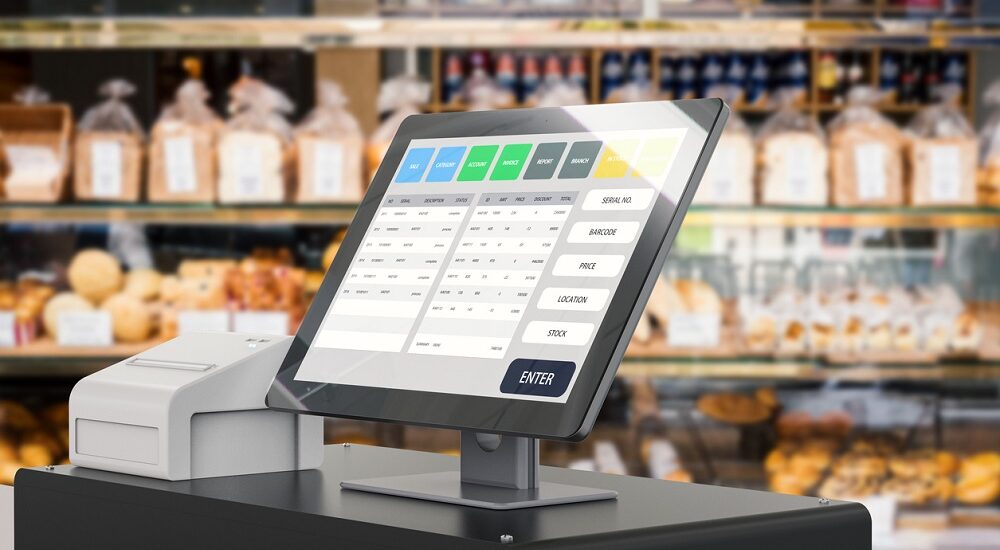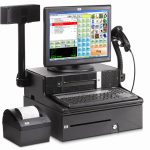- June 3, 2024
- Posted by: simba001
- Categories: Benefits of POS, Business Insights

A Point of Sale (POS) system in Kenya isn’t just a tool for processing transactions; it’s a vital component of your retail business operations, impacting everything from customer experience to inventory management and financial reporting.
With numerous options available on the market, selecting the right POS system in Kenya can be a daunting task. However, by asking the right questions, you can narrow down your choices and find the system that best meets your needs.
Evaluating the features, functionalities, and compatibility of different POS options against your business requirements will help you make the right selection.
Here are some of the key questions you should consider before making a decision.
Questions to ask when buying a Point of Sale system in Kenya
What features does the POS system offer?
Make sure it includes essential features like sales processing, inventory management, reporting, and customer management. Depending on your business needs, you might need additional features like loyalty programs, employee management, or online ordering.
Which retail sector is the system designed for?
Point of sale system in Kenya often specialise in specific sectors, meaning they are often designed with unique or industry specific features in mind. Make sure the system you select is right for your business. For example, a restaurant will require a very different set of features to a fashion boutique or a pharmacy.
Is the system scalable?
Ensure the POS can grow with your business. Can it handle an increase in transactions, new locations, additional terminals, integrations and features as your business expands?
What hardware is compatible with the POS system?
Check if the POS works with your existing hardware, such as cash drawers, receipt printers, barcode scanners, and payment terminals. If not, what additional hardware do you need to purchase?
What payment methods are supported?
Confirm that the system accepts various payment methods, including credit/debit cards, mobile payments (like Mpesa, Airtel Money etc), and possibly alternative payment methods like credit cards. Can it process vouchers or gift cards?
Is the POS software cloud-based or on-site?
Understand the advantages and disadvantages of each for your business. Cloud-based systems offer easier access, automatic updates, and data backup, while on-site systems may provide greater control over data and security.
What is the pricing structure?
Ask about setup fees, monthly or annual subscription costs, transaction fees, and any additional charges for extra features or support. Also, enquire about any long-term contracts, cancellation fees, and the potential cost of future upgrades.
How user-friendly is the POS system?
Consider how easy it is to learn and use for you and your staff. Does it offer intuitive interfaces and straightforward training materials?
What kind of support and training options are available?
Determine if the provider offers training sessions, user manuals, tutorials, or 24/7 customer support. Also, find out if there are any additional costs associated with these services. Find out if support services are in house or outsourced.
What are the security features?
Inquire about the security measures in place to protect customer data and prevent fraud. Does it comply with industry standards like PCI-DSS (Payment Card Industry Data Security Standard)? How does the system protect against data breaches? Are there any built-in compliance features?
Can the POS system integrate with other software?
Can the system integrate with your existing software, or any new software you might wish to add later, such as accounting, CRM, inventory management, ecommerce platforms etc.?
What reporting and analytics capabilities does the system offer?
Ensure the system provides detailed sales reports, inventory tracking, and insights into customer behaviour. Can you customise reports to meet your specific needs?
What kind of maintenance is required for the POS system?
Ask about software updates, backups, and any regular maintenance tasks needed to keep the system running smoothly.
Does the POS system comply with local regulations and tax requirements?
Make sure the system can handle tax calculations, reporting, and compliance with local laws and regulations.
Can the POS system support multiple locations?
If you have or plan to have multiple stores, ask if the POS system in Kenya can manage them centrally and provide consolidated reporting.
How reliable is the system?
What is the system’s expected uptime? How often are updates and maintenance required, and could this affect you during trading hours?
What are the reviews and testimonials from other users?
Look for reviews and feedback from other businesses, particularly those in your industry, to gauge their satisfaction and any potential issues.
Asking these questions before weighing up your options will help you make an informed decision when selecting a POS system in Kenya to best fits your business needs.
Contact us to find out more about point of sale for retail and .





